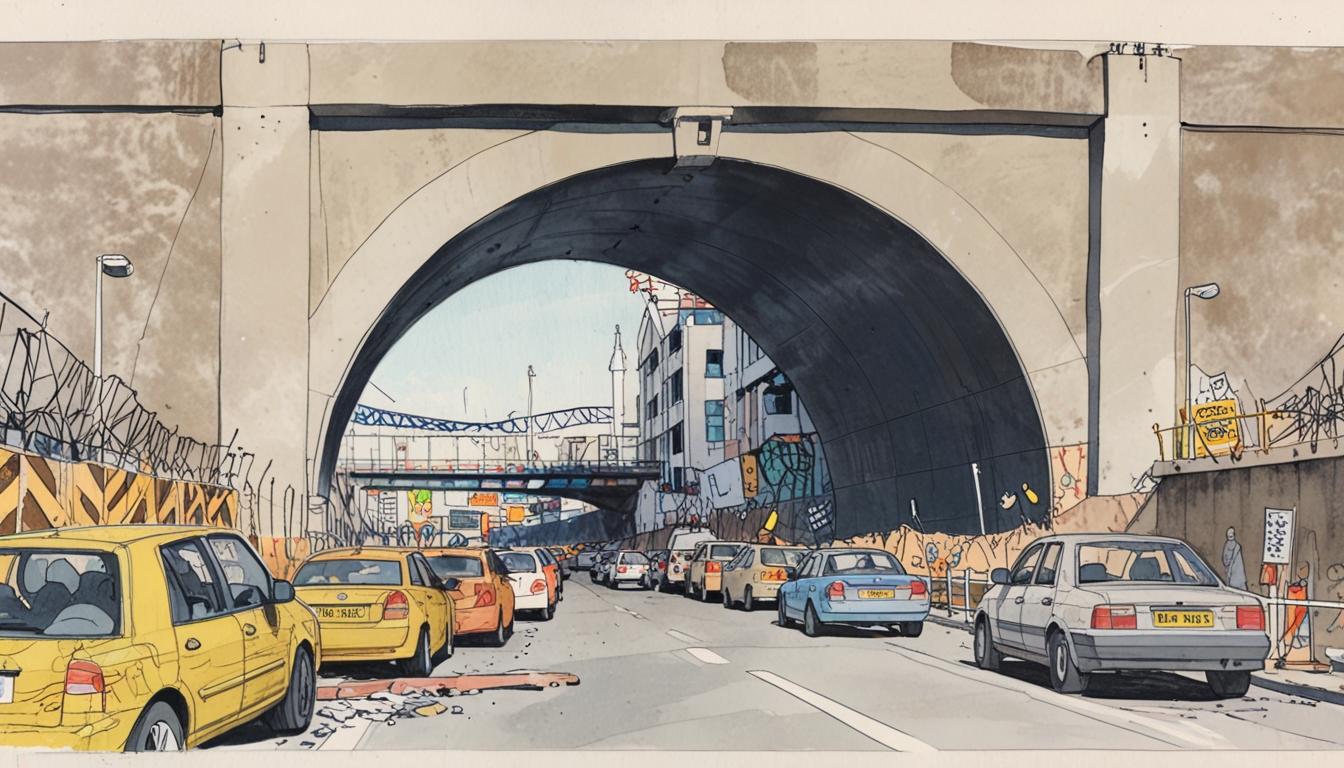A new road tunnel under the River Thames, the Silvertown tunnel, is set to open for traffic in east London on Monday, establishing a connection between Greenwich on the south bank and Newham on the north. This multibillion-pound project, which cost approximately £2 billion, intends to alleviate congestion and improve air quality in the area, according to Sadiq Khan, the Mayor of London, and Transport for London (TfL) officials.
Despite official endorsements, the tunnel has faced significant opposition from a variety of stakeholders, including local residents, politicians, climate scientists, and public health experts. Critics argue that the tunnel will exacerbate traffic congestion and air pollution, particularly affecting communities in some of the most deprived boroughs of London. They further claim that it risks perpetuating a reliance on high-carbon transport for generations.
Victoria Rance, the founder of the Stop the Silvertown Tunnel Coalition, expressed frustration, stating, “As cities across Europe invest in public transport or active travel – real green transport infrastructure – we are left with what is effectively 1970s technology … a highly polluting road tunnel that will be out of date the moment it opens.” Rance indicated that community health is at risk due to the project and called for the tunnel to be repurposed for public transport and cycling.
Khan, however, maintains that the tunnel will enhance travel options in the south and east of London with faster and more reliable journey times, promising improved air quality and enhanced public transport connections through zero-emission cross-river buses. He noted that discounts and concessions for local residents would be available, alongside a designated lane for zero-emission double-decker buses and a free cycle-shuttle service intended to promote greener transportation options.
The Silvertown tunnel spans 1.4 kilometres (0.9 miles) and aims to charge car drivers up to £4 per crossing. However, critics have highlighted concerns regarding the inclusion of heavy goods vehicles (HGVs) in the bus lane, arguing that this will open a new route for larger lorries unable to utilise the nearby Blackwall tunnel. Tolls will not apply to lorries or any vehicles from 10pm onwards.
Caroline Russell, a Green Party member of the London Assembly and a long-time opponent of the tunnel, remarked that the opening serves as a stark reminder of money spent on a project lacking genuine local support. She advocates for river crossings that prioritise clean air, safe walking and cycling, and affordable public transport over what she describes as a "traffic-inducing road tunnel."
Russell further critiqued the proposed cycle shuttle service, labelling it as “a half-baked impractical solution,” noting the difficulties cyclists would face in having to dismount, wait, and transport their bikes onto the bus. She voiced concerns about the overall safety for cyclists in an area she described as filled with high-risk junctions.
As the Silvertown tunnel prepares to welcome its first vehicles, the divide between supporters and critics of the project highlights the ongoing debate about urban transport solutions in London.
Source: Noah Wire Services
